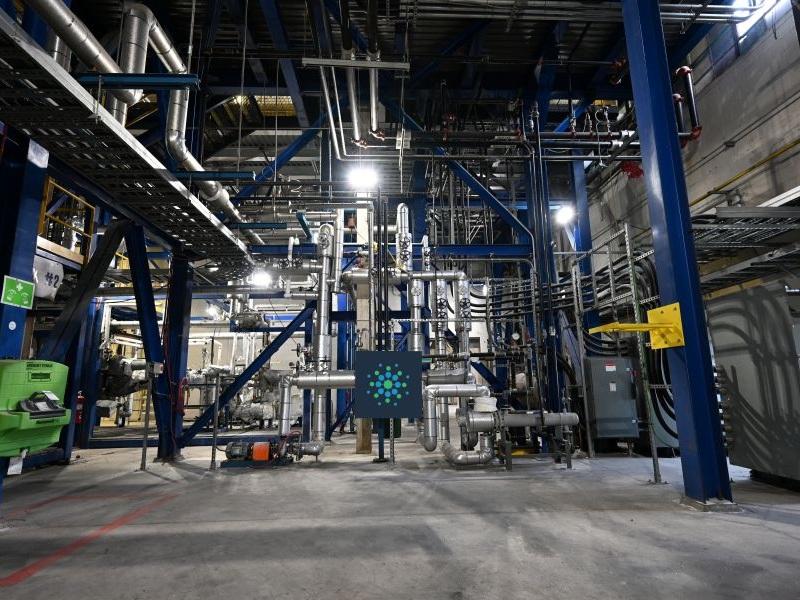 GUEST SUBMISSION: For nearly 30 years renewable energy companies in Canada have been using what are called flow-through shares (FTS).
GUEST SUBMISSION: For nearly 30 years renewable energy companies in Canada have been using what are called flow-through shares (FTS).
Now we stand on the threshold of a green economic transformation. Canada can do this by extending FTS to the broader tech sector. FTS allow a firm to "flow" its tax deductions to investors, who can gain a tax deduction up to 100 per cent. We can build on our innovation by using this tool which has a track record extending back 71 years.
In the last week of the recent federal election campaign, the Liberals committed to expanding FTS to include early-stage technology ventures — a long-overdue move that could deliver a huge economic impact just in year one by:
- injecting $500 million in new private investment;
- generating $1.25 billion in economic activity;
- generating $375 million in new tax revenue; and
- spurring significant job creation in several high-skill, future-focused sectors
Even more importantly, it would help keep Canadian intellectual property, ownership and jobs in Canada — avoiding the all-too-common story of startups being sold abroad due to lack of domestic investment. Our economy needs to create a habit of Canadians investing in Canadian tech.
In a 2019 study the Ottawa based Smart Prosperity Institute studied FTS as one way to deal with what it identified as the primary problem: clean growth represents an enormous market opportunity. While Canada has a promising cadre of cleantech firms poised for growth, lack of financing remains a major barrier to scale-up and commercialization.
At a time when climate urgency and global competition intersect and U.S. President Donald Trump threatens our nation, Canada now has both the political will and the financial playbook to revitalize our economy.
In part, the Liberal policy reads, "Incentivize investment in innovation, especially in Canada’s startups, to help them grow and scale by introducing flow-through shares to our Canadian startup ecosystem."
Prime Minister Mark Carney appears ready to back a sustainable economy. The FTS policy alone comes with a $2-billion commitment over four years while the party promises other measures can bring $200 billion of new private investment for sustainable industries over four yeas.
Brookfield taps into green
Carney was vice-chair at Brookfield Asset Management and co-founded a pair of green investment funds. He was criticized for using a Bermuda base as a tax haven. He said he “knows how the system works” and reduced taxes paid, but said benefits still came to Canada.
Brookfield Renewable Partners has become one of the world’s powerhouses investing in and operating renewable energy facilities. The fund uses a version of FTS. It is a limited partnership and is designated as a “flow-through entity”, meaning its taxable income flows to unitholders and is taxed at their level.
In its latest financial report, it saw $1.217 billion in funds from operations, a five-per-cent dividend increase, and its 14th consecutive year of growth. It’s a shining example of success built on renewable energy.
But the next success story — the one pioneering carbon removal, advanced battery storage, or green hydrogen — may never get off the ground in Canada. Early-stage cleantech companies remain starved for domestic investment, constrained by outdated financial incentives designed for yesterday’s economy.
Five years ago the Canada Clean Tech Alliance failed in an effort to extend FTS. But the world has changed. We don’t lack ideas. Rather, we lack the mechanisms to give more funding options.
Carney’s green playbook was partially written in Britain
Carney’s return to Canada couldn’t be more relevant to the sustainability transition. As former Governor of the Bank of England he was instrumental in mobilizing green capital at a global scale.
In 2024, Carney advised the U.K.’s £7.3-billion National Wealth Fund, a public-private investment vehicle designed to unlock clean industrial growth by crowding in private capital. He combined public policy into financial architecture that accelerates innovation and climate action.
Carney’s U.K. experience gives us a glimpse of what’s possible.
The U.K.’s Enterprise Investment Scheme (EIS) and Seed EIS (SEIS) function similarly to FTS — and their results are undeniable:
- Nearly £30 billion in private investment since inception;
- Over 53,000 early-stage companies supported;
- In 2022–2023 alone, £1.957 billion raised via EIS, and £157 million via SEIS; and
- SEIS-funded companies delivered 23 per cent higher turnover, 245 per cent more assets, and 12 per cent more employment than non-participants.
These targeted incentives have helped scale British climate tech leaders like Revolut, Octopus Energy and Moixa. It’s a model Canada can confidently adopt — and improve.
A Canadian solution to a global challenge
Developed in Canada, FTS is a 71-year success in Canada’s resource sector, especially in mining, attracting high-risk capital by letting companies pass tax deductions to investors. In the past decade alone, FTS have helped raise $800 million to $1.4 billion annually, generating billions in GDP and tens of thousands of jobs.
A clear example of the power of FTS in the renewable energy sector is Solar Flow Through Funds. FTS helped the Ontario firm to finance 70 solar projects. FTS covered 20 per cent of project costs. Last year the firm was acquired by another Canadian company for $45 million.
Expanding FTS to support Canada’s clean tech ecosystem is simply the next logical step — one that reflects where the global economy is headed. In the past five years the capacity of Canada’s renewable energy sector has surged by 46 per cent.
This is sustainability as strategy — not just for emissions reduction, but for national prosperity.
The time for talk has passed
With the U.S. entering a period of tariff-heavy, isolationist energy policy under President Trump, Canada must insulate its green economy from external shocks. Relying on U.S. markets for growth is no longer viable.
Modernizing FTS gives Canada the homegrown advantage: a way to finance our own future, with our own dollars, in a way that supports global climate goals while growing our economy.
Sustainability needs more than goals — it needs capital
Canada has world-class talent, technology, and ambition. What it has lacked is the financial infrastructure to fund the clean economy at scale.
Flow-through shares built Canada’s mining industry. Now they can build climate leadership. The policy is proven in mining and renewable energy. The moment is here. If we act now, we can ensure that the next generation of sustainable innovation is born, funded and scaled right here in Canada.
If you believe Canada’s cleantech future deserves smart financing and bold policy, you can add your voice to the national call. Visit this link to support the inclusion of flow-through shares for tech and the sustainable economy in our next budget.










